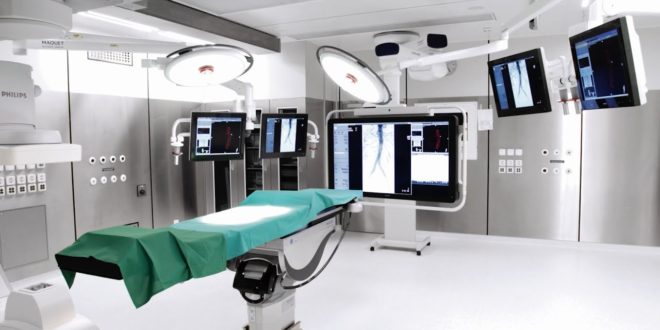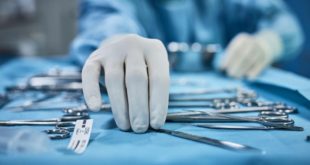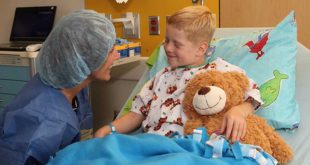Have you ever entered an operating room and wondered why it is so cold in there? I always joke in fun that it is because the surgeon has such a warm personality.
In reality, it is cooler in the area of the operating rooms because the surgeons wear gowns, gloves, masks, and hats. Sometimes they have lead aprons on their body and neck to protect against radiation from x-rays that are needed to safely perform your surgery. And there are bright, hot lights shining down on the patient that shine on the surgeons as well. These make the surgeons heat up and become uncomfortable.
Despite cooling the room down, it is not uncommon for surgeons to perspire during longer cases. We don’t want to take anything away from their ability to focus on taking great care of you. And you don’t want your surgeon’s sweat dripping into your incision area, no matter how much you like them.
Do not worry, though. We will provide you with warm blankets on the way to the room and once you arrive. Often, the bed has been warmed for you. While you are asleep, we monitor your temperature and can provide more warming blankets to your body. When you wake up, we can cover you with warm blankets if you are cold. In fact, we have warmers near the rooms that hold lots of toasty blankets just for this reason. We also have special “blankets”, also known as a Bair Hugger, that can circulate warm air over your body.
One of the side effects of anesthetic drugs is that they alter your body’s ability to regulate its temperature. Your body is a finely tuned machine that normally regulates its temperature within several tenths of a degree. Anesthetics can expand this range to be about 2 to 4 degrees wide. Relatively speaking, that’s a huge difference! A patient can become poikilothermic, which is just a fancy way to say they have an inability to regulate body temperature. If this condition is not monitored and treated, hypothermia may develop.
Hypothermia can have negative effects on your body’s ability to recover from surgery. It can worsen blood loss during surgery as your platelets (which help blood clot) stop working as well as they should. It can also increase the chance of surgical would infections to develop. We think this is by a mechanism where the constriction of blood vessels to the wound area limits the delivery of blood, oxygen, and immune cells. Hypothermia can also prolong the actions of many drugs because enzymes that are involved in their metabolism are temperature sensitive.
The good news is that anesthesiologists know this and have set standards for monitoring your temperature during the surgical period. It is similar to our monitoring of your other vital signs (heart rate, blood pressure, oxygen saturation, etc) and is simply one of the things we do to take care of our patients.
Though the operating room environment may be cool (or downright cold!) for a multitude of reasons, your anesthesiologist will be monitoring your temperature throughout your procedure to make sure it stays within a safe range.
Have you had surgery recently and been cold? Let us know what your anesthesia experience was all about by leaving a comment or visiting the forum.
Thanks for visiting anesthesiamyths.com!
 Anesthesia Myths: Get the Facts, Lose the Fear | Your #1 Anesthesia Resource in Simple language
Anesthesia Myths: Get the Facts, Lose the Fear | Your #1 Anesthesia Resource in Simple language




